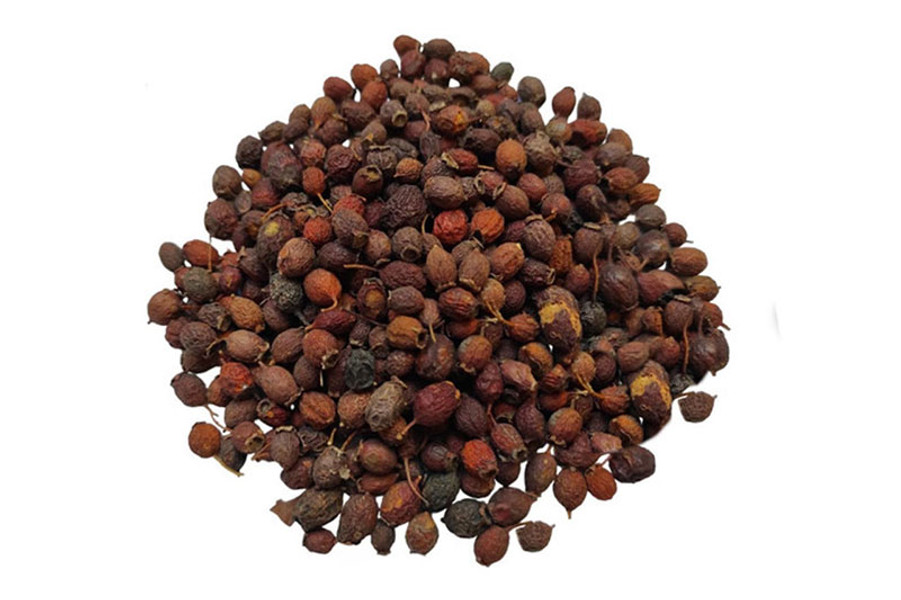The 6 Benefits of Hawthorn: Boosting Your Heart's Health
Posted by Fresh Harvest Market on 23rd Jul 2024
Let's have a sincere conversation about the well-being of your heart. It's a message often repeated, yet its truth remains undeniable. Prioritizing your heart's health is crucial for both your daily wellness and long-term vitality. Introducing hawthorn berry into your regimen could significantly impact your heart's health. This essential organ can sometimes be overlooked, highlighting the importance of dedicating care and attention to it.
Research conducted by the Cleveland Clinic revealed that while 68% of Americans are concerned about succumbing to heart disease, many are uninformed about how to properly care for their heart. A healthy diet, regular exercise, and sufficient sleep play key roles in strengthening your cardiovascular system.
For those who are already practicing these fundamental health steps but wish to enhance their heart health further, hawthorn stands out as a potent natural supplement for cardiovascular support. Join us as we delve into the benefits of hawthorn for heart health.
*Disclaimer - Although hawthorn is beneficial for many, it's advisable to consult your doctor before incorporating it into your health routine.
What exactly is hawthorn, and for what purpose is it used?
Hawthorn is a type of flowering shrub that originates from Asia, Europe, and North America. As part of the rose family, this sturdy shrub is characterized by its aromatic flowers and defensive sharp thorns. The shrub bears red fruits or berries, scientifically referred to as haws.
Why do people use hawthorn? It's primarily celebrated for its cardiotonic properties, enhancing the strength and efficiency of the human heart. Hawthorn is frequently recommended for individuals dealing with heart and cardiovascular issues, aiding in the management of their symptoms.
This makes it particularly valuable for supporting the cardiovascular system, notably for adults over the age of 65, who are at an increased risk of cardiovascular diseases. Hawthorn offers support for those with a poorly functioning, weary, or aging heart.
6 Ways Hawthorn Boost Heart Health
Circulatory stimulation - Hawthorn can help increase blood flow throughout the body, which can help individuals better balance their bodies' natural functions. This increased oxygenation is especially critical for the heart as it helps decrease the potential for a heart attack.
Antioxidants - Hawthorn can help inhibit damaging free radicals that your body produces in response to stress or aging.
Connective tissue stimulation - Hawthorn can support the health of the connective tissues that help your body transport nutrients. It also provides support that keeps your body's structure whole and working properly.
Vasodilative properties - Hawthorn promotes dilation of the blood vessels to regulate blood pressure and to lower serum cholesterol and triglyceride levels.
Cardioprotection - Hawthorn can support the health of the cardiovascular systems that protect the heart from myocardial damage. This herb can help balance and normalize one's heart rate, making it a go-to for heart palpitations.
Anti-inflammatory properties - Hawthorn can help individuals with inflammation better manage their symptoms.
The Science Behind Hawthorn
Where does hawthorn get its awesome cardio-boosting properties? The most active substances in hawthorn are bioflavonoids and oligomeric procyanidins. These chemical compounds are naturally found in fresh produce, including hawthorn berries, which are rich in antioxidants that prevent toxic buildup.
History Facts of the Hawthorn Hardware Scrub
The hawthorn shrub, a member of the rose family, has a rich history spanning thousands of years, during which it has been valued for its medicinal, magical, and spiritual significance.
The ancient Greeks and Romans regarded hawthorn as a symbol of hope, incorporating it into wedding celebrations and childbirth rites. Romans also believed in the protective power of hawthorn, hanging its branches over doorways to repel evil spirits and placing its sprigs in cradles as a safeguard for infants.
Celtic healers, referring to the hawthorn as the "Faery Bush," held the belief that it was a dwelling place for fairies and used its branches as a shield against negative energies.
Beyond its mystical applications, hawthorn has been utilized for its health benefits, particularly for treating scurvy, alleviating stomach pains, and combating general weakness, thanks to its vitamin C richness. Its medicinal use in Chinese practices dates back to at least 659 CE.
The introduction of hawthorn into Western medicine is often credited to an Irish doctor, Dr. Green of Ennis, County Clare. For centuries, hawthorn has been a staple in providing cardiovascular support and continues to be valued for its health benefits today.
Does Hawthorn Help my Nervous System?
Indeed, hawthorn possesses gentle nervine properties, making it effective at soothing an overly stimulated nervous system. In Traditional Chinese Medicine (TCM), it is celebrated as a Shen tonic. Shen, believed to be the spirit that resides within the heart, is crucial for emotional well-being. Disturbances in Shen can manifest as anxiety, insomnia, restless sleep, and heart palpitations.
If you're interested in leveraging hawthorn's benefits for both your cardiovascular and nervous systems, explore some methods for preparing and using hawthorn.
How to Use Hawthorn Berries
Several methods exist for preparing hawthorn berries, powder, and leaves to ensure you get the most benefit from them. For those looking to enhance hawthorn's effects, it pairs well with other herbs that support cardiovascular health, such as ginkgo, motherwort, and linden.
Utilizing Hawthorn Berry: Tinctures, Decoctions, Infusions, and Capsules
Hawthorn can be consumed in various forms, including tinctures, decoctions, infusions, or capsules. The recommended dosage for capsules ranges from 160 to 1200 mg. It's advisable to consult your healthcare provider to find the most suitable dosage for your needs.
How to Make Hawthorn Berry Tea
If you're wondering how to make hawthorn berry tea tea, use this quick step-by-step recipe:
- Boil 8-12 oz of water (microwave or stove-top).
- Add 1 tsp of dried hawthorn berries into the boiling water.
- Add any other herbs and dried fruits to change the tea's flavor profile.
- Simmer gently for 10 minutes.
- Pour into desired mug or cup.
- If using hawthorn leaves and flowers, steep in hot water for 5-10 minutes instead.

